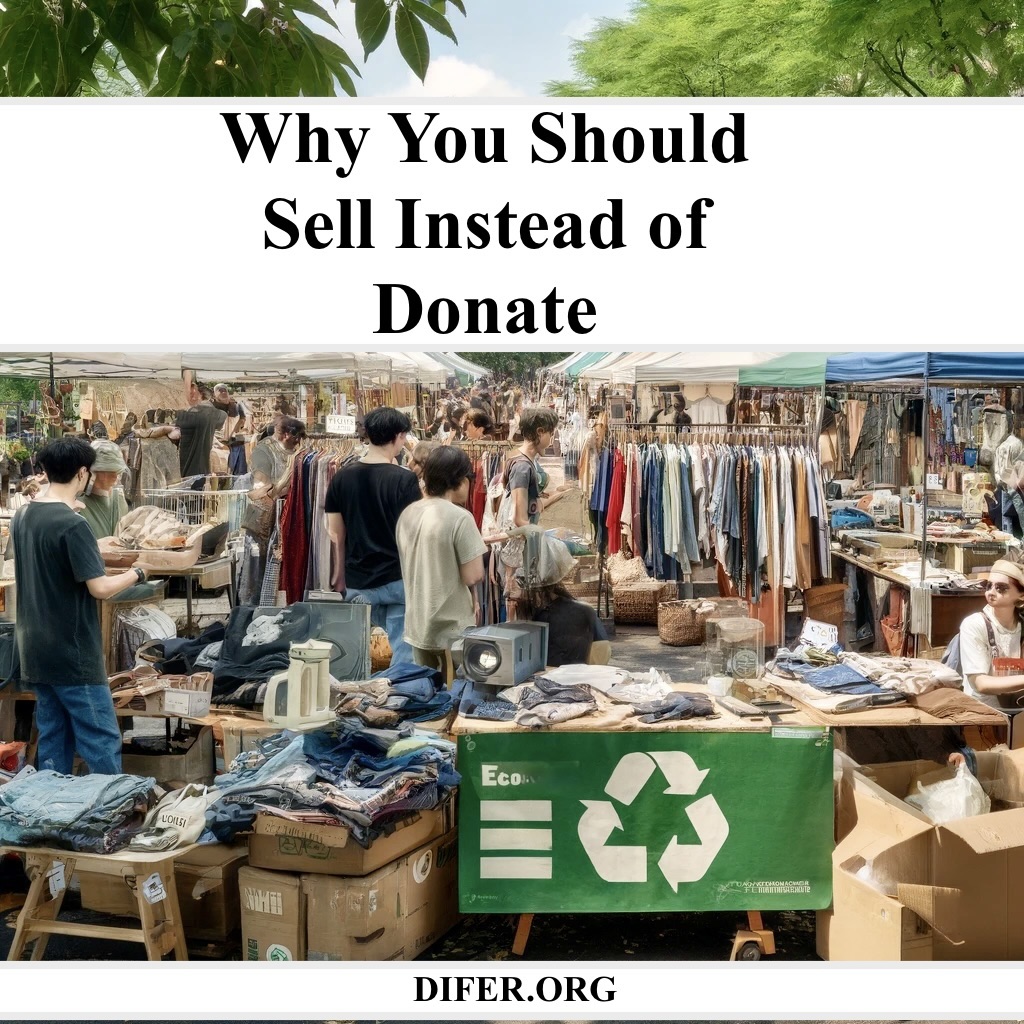While donating items can be a generous and altruistic act, selling them can have several advantages:
- Financial Return: The most obvious benefit of selling items is the financial gain. Selling things you no longer need can provide extra income, which might be particularly beneficial if you’re saving for a specific goal or need to offset the cost of new purchases. Selling items also allows you to recoup some of the money spent on them, which can be especially beneficial if you’re looking to declutter and make some extra cash. This money can be put towards other expenses or savings goals.
- Value Recognition: Selling items acknowledges their value and allows you to receive fair compensation for them. This can be particularly important for items that are in good condition or have sentimental value.
- Control Over Pricing: When you sell items, you have control over the pricing. This allows you to set a value that you feel is fair based on the item’s condition and market demand, whereas donating does not yield any direct financial return. When you donate items, they might be resold at even higher prices which is more expensive for the next consumer. By selling them yourself directly to people who want them, you are removing any potential middleman mark up to the next consumer.
- Targeted Audience: Selling items often allows you to reach a specific audience who is interested in purchasing them. Platforms like eBay, Facebook Marketplace, or specialized forums cater to people looking for second-hand items, which might increase the likelihood of your items being appreciated and reused.
- Declutter Efficiently: Selling items can sometimes be faster than donating, especially if you use online platforms. This is because you directly reach individuals who need your item, rather than waiting for it to be sorted and processed through a charity organization.
- Environmental Impact: By selling your items, you ensure that the buyer is someone who really wants or needs the product, potentially leading to a longer lifespan for the item. This can be seen as an environmentally responsible choice, as it promotes reuse and extends the lifecycle of products. While donating items is also a sustainable choice, selling them can be more environmentally friendly. By giving items a second life through resale directly to someone who definitely wants them, you’re reducing the demand for new products and minimizing waste.
- No Processing and Storing: When you sell items directly, no processing or storage facilities or activities are needed. There also no need to deliver items to different locations. The next consumer can pick up the item they are looking for directly from the source saving money and time.
- Empowerment: Selling items can empower you to take control of your possessions and make intentional decisions about what you want to keep and what you’re ready to let go of. It can be a liberating process that encourages mindful consumption and decluttering. You can choose to sell or give way items to the people you choose. When you donate items, you have no control over who gets them and what is done with them.
However, it’s important to consider that selling items requires more effort than donating. You need to manage listings, respond to inquiries, handle negotiations, and sometimes ship items, which can be time-consuming. Additionally, the choice between selling and donating might also reflect personal values regarding community support and charity. Donating items can provide essential goods to those in need and support the missions of various nonprofit organizations, which is a significant consideration for many people.
Overall, whether you choose to sell or donate items depends on your individual circumstances and priorities. While donating is a generous act that can benefit others, selling items can offer financial rewards, recognize their value, reach a wider audience, reduce environmental impact, and empower you to take control of your possessions.

DIFER.ORG Supports the reduction of Waste





